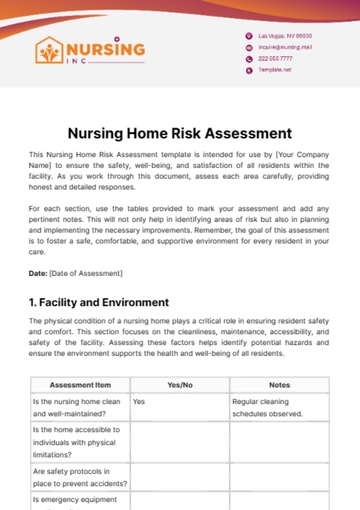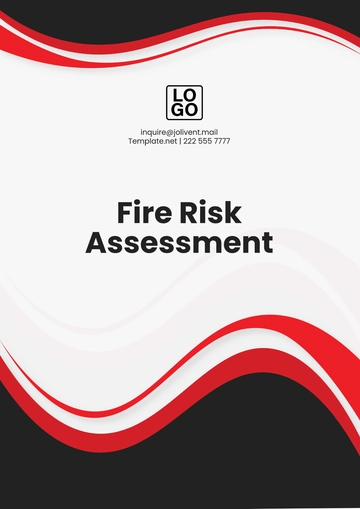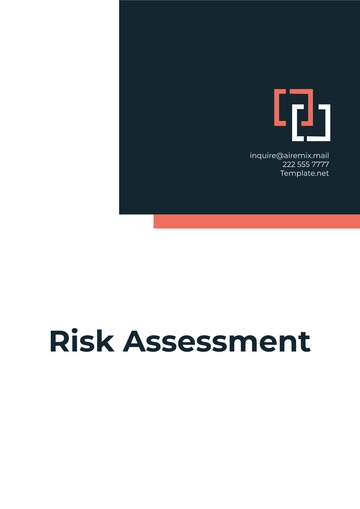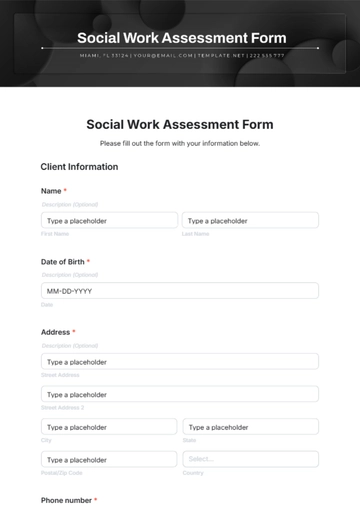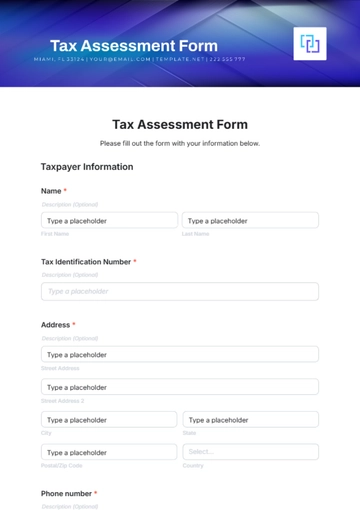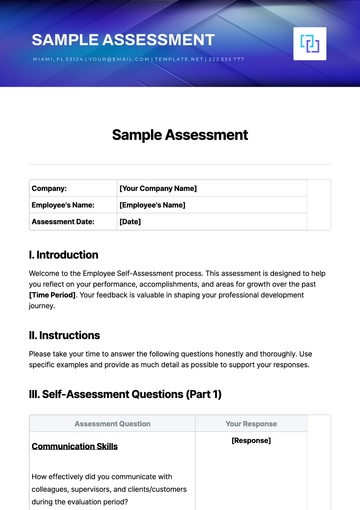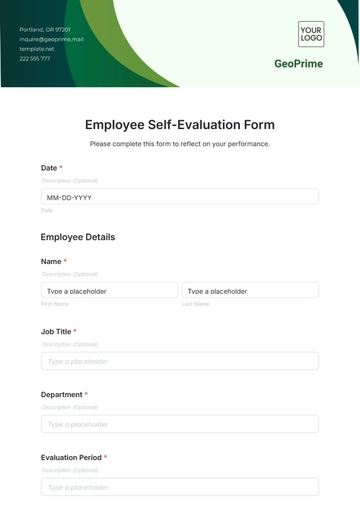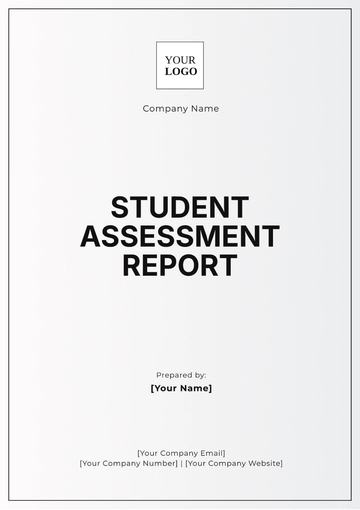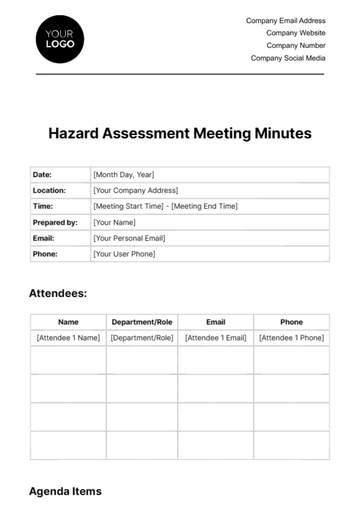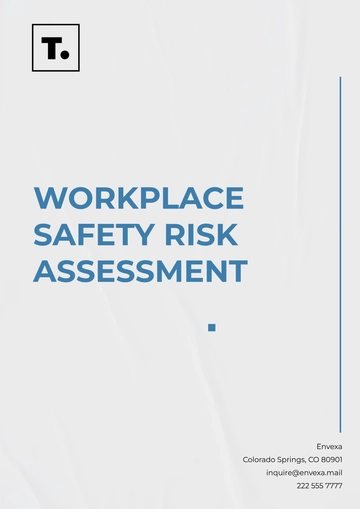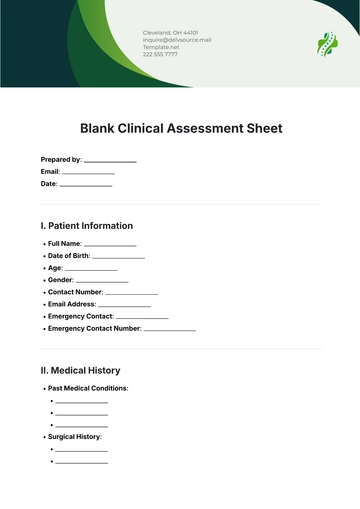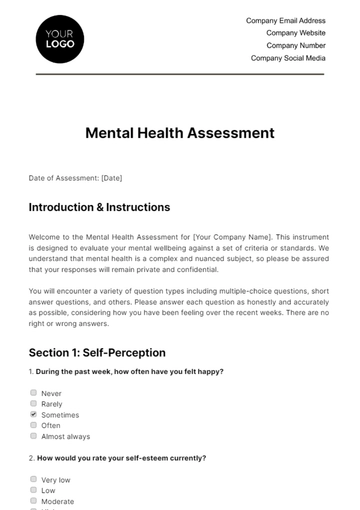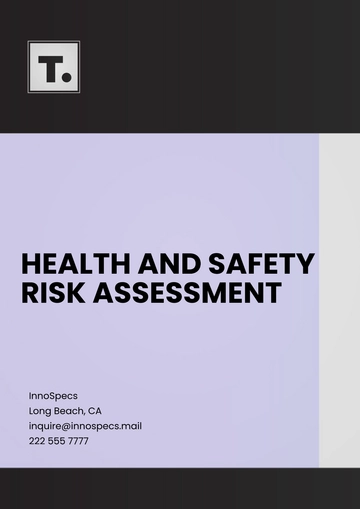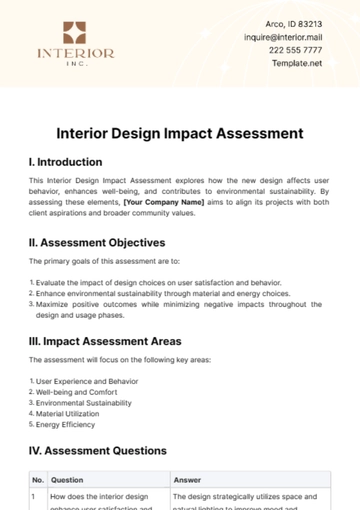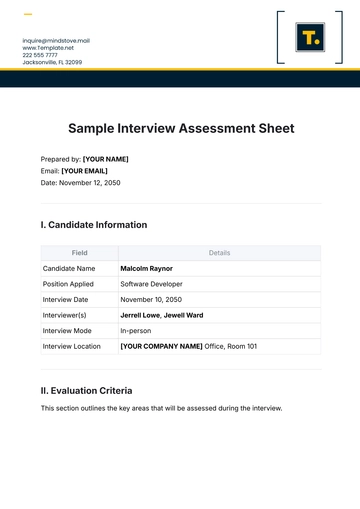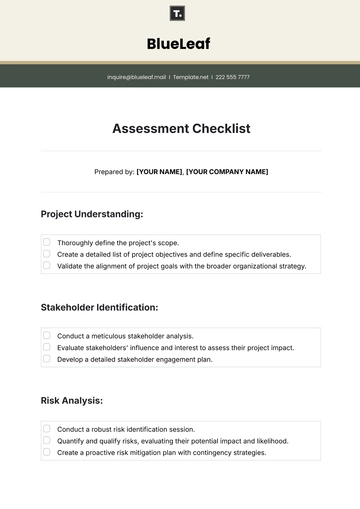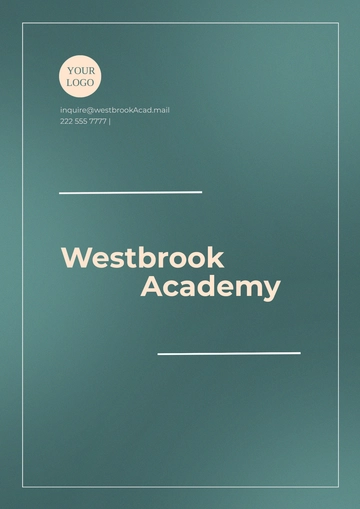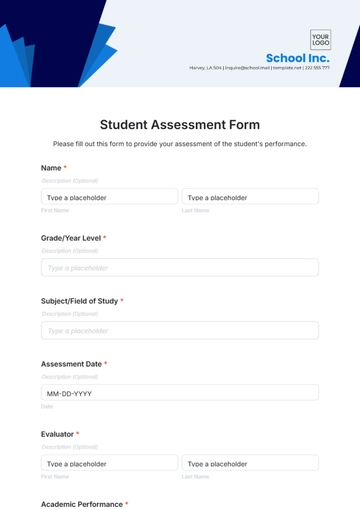Free Preschool Learning Assessment Report
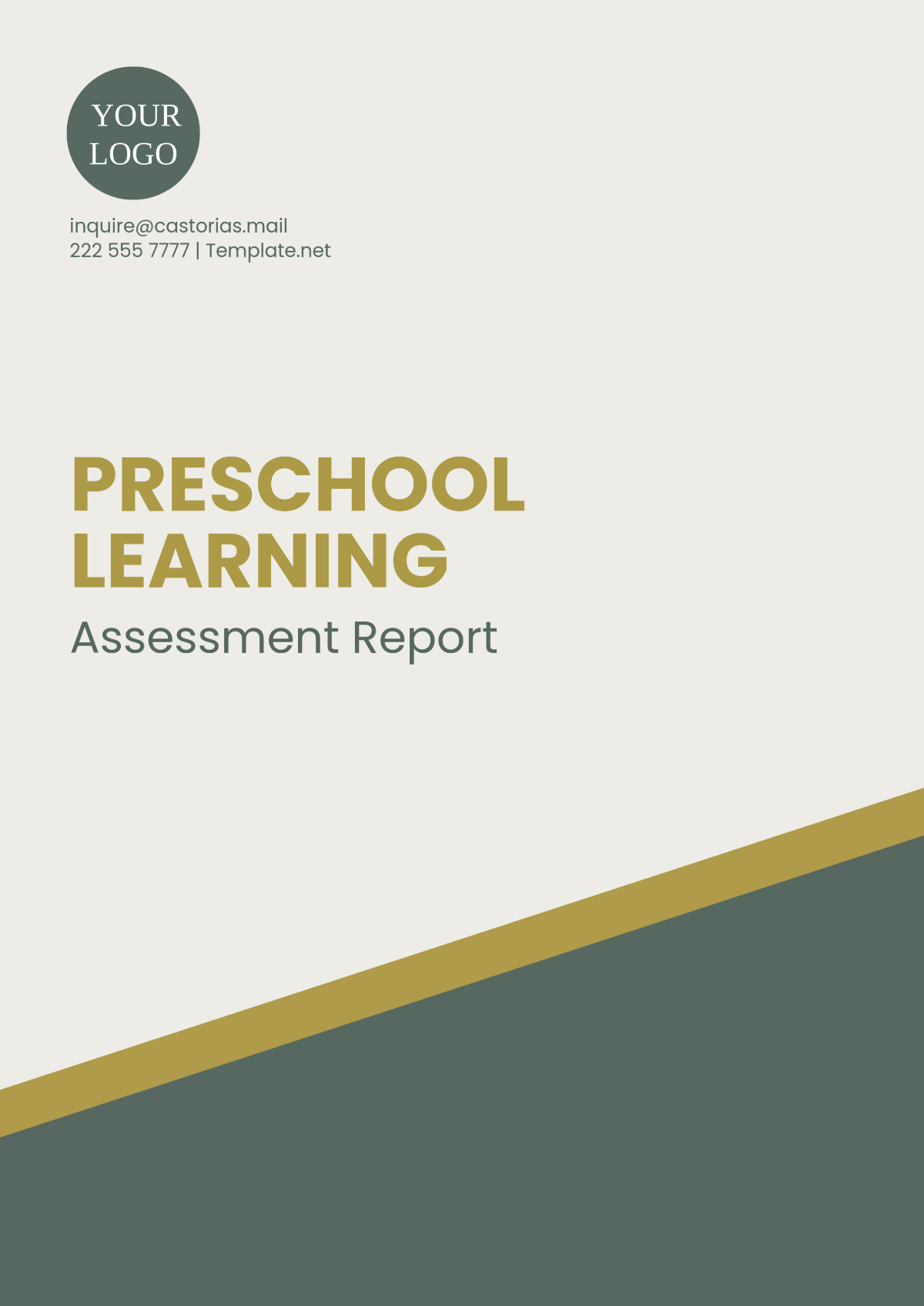
Introduction
The purpose of this report is to evaluate the learning progress and development of children enrolled in [YOUR COMPANY NAME]'s preschool program. This assessment provides insights into various aspects of early childhood education such as cognitive, social, emotional, and physical development.
Assessment Objectives
The primary objectives of this preschool learning assessment are to:
Identify individual learning achievements and developmental milestones.
Recognize areas that require additional support and intervention.
Provide feedback to educators and parents for improving educational practices.
Ensure that the curriculum meets developmental and educational needs of preschool children.
Methodology
The assessment uses a combination of observation, direct interaction, and standardized tests tailored to the preschool environment. It covers both formal and informal settings to gain a comprehensive understanding of each child's abilities.
Participants
The participants in this assessment include children aged 3-5 years, the educators, and the parents involved in the program. The sample size consists of 50 children selected randomly from various classes.
Tools and Techniques
The following tools were employed during the assessment process:
Standardized development checklists.
Interactive group activities designed to assess social and cognitive skills.
One-on-one interactions and interviews with children, facilitated by educators.
Parental questionnaires to understand behavior in home settings.
Findings
Cognitive Development
Cognitive development encompasses skills such as attention, memory, and problem-solving.
Skill | Percentage Achieved | Observations |
|---|---|---|
Attention Span | 80% | Most children demonstrated the ability to focus for extended periods during structured activities. |
Memory Recall | 75% | Children were able to recall sequences and stories with prompt. |
Problem Solving | 70% | Problem solving through puzzles and logical games showed positive engagement. |
Social and Emotional Development
Social and emotional skills are crucial at this developmental stage, emphasizing interaction, empathy, and emotional regulation.
Peer Interaction: 85% of children frequently engaged in cooperative play, sharing, and group activities.
Emotional Understanding: 78% demonstrated an understanding of basic emotions such as happiness, sadness, and anger.
Self-Regulation: 65% showed emerging skills in managing frustration and conflicts with minimal adult intervention.
Physical Development
This domain covers both fine and gross motor skills observed during the assessment period.
Motor Skill | Proficiency Level | Comments |
|---|---|---|
Fine Motor Skills | Good | Activities with drawing and cutting have enhanced dexterity. |
Gross Motor Skills | Excellent | Frequent outdoor play has developed strong coordination and balance. |
Recommendations
Based on the findings, the following recommendations are provided:
Include more structured cognitive exercises in daily activities to enhance problem-solving skills.
Implement group activities that promote emotional understanding and empathy development.
Enhance communication between educators and parents to reinforce learning at home.
Expand the physical education program to further improve gross motor skills, incorporating a variety of sports and physical challenges.
Conclusion
This preschool learning assessment indicates that while children show commendable achievements in various developmental areas, continued emphasis on cognitive and emotional skills is essential. Regular assessments and collaborations between educators and parents will ensure ongoing progress and address areas needing improvement.
- 100% Customizable, free editor
- Access 1 Million+ Templates, photo’s & graphics
- Download or share as a template
- Click and replace photos, graphics, text, backgrounds
- Resize, crop, AI write & more
- Access advanced editor
Track and assess early learning with the Preschool Learning Assessment Report Template available at Template.net. Editable in our AI Editor Tool and fully customizable, this template allows educators to document academic performance and developmental progress. A professional and efficient way to evaluate each child’s learning progress and share with parents.


